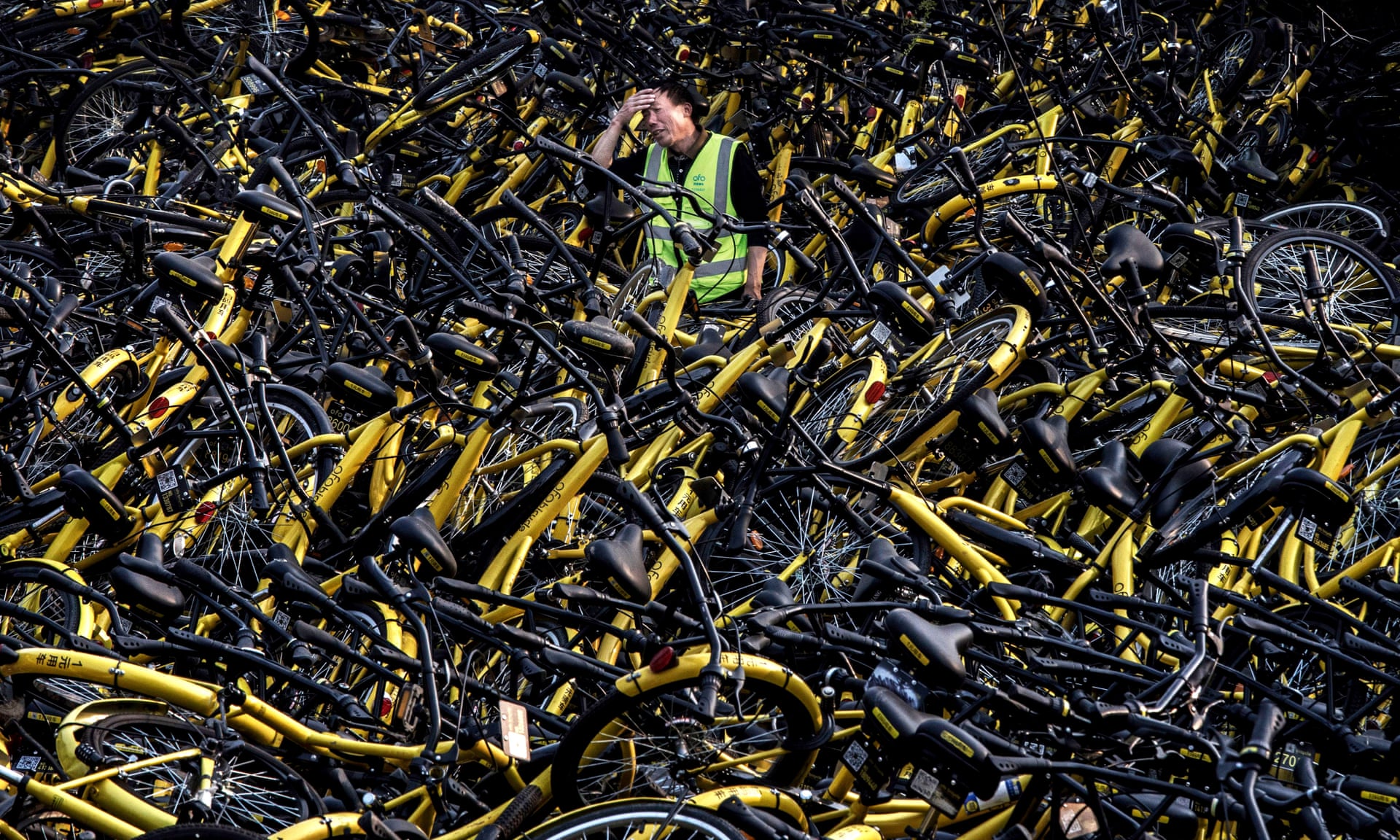That picture is a "bicycle share graveyard," says the Guardian's Ben Haas in an article about the boom and bust of Chinese bike share programs. The problem, he states, is that the companies flood the streets with cheap bikes that can be unlocked with and app and dumped anywhere just as easily.
The article, and the comments beneath, suggest that the overabundance of bike share bikes creates an environmental and social malediction, congesting walkways and causing turmoil in the markets.
So I would like to compare the Chinese Laissez-faire system against the diametrically opposed Divvy Bike Share in Chicago.
Divvy differs from the Chinese system in that it represents a single monopoly awarded as a public/private partnership with Motivate Co. In the Chicago system, a network of bike stands are spread around the city with a handful of bikes at each location and (ideally) a few vacant spots for people commuting in. The balance of open/available spots in each location is maintained by a fleet of vans that pick bikes up and move them where they're needed.
The keen reader can probably spot a number of flaws in this system, not the least of which being that it requires monitoring and motor vehicle implementation in order to work right.
At $10 a day or $100 a year, Divvy seems reasonable. But in China, a ride on a Mobike or an Ofo will cost just a few pennies. Costs are kept low because motor-vehicle balancing can be done by just looking for a thick pile, and dumping it somewhere else. Or they can not worry about it and let the rider market figure it out on their own, reasoning that most trips include both a destination and a return, so bikes will eventually end up where they started.
The downside of the Chinese system is that it relies on cheap, crappy bikes that aren't made to last long, because there will be almost no opportunity to maintain them. For this reason, bikes often get ditched or trashed, making huge metal messes on the sidewalks, and blocking thoroughfares. Cleaning these detritus bikes puts an extra strain on municipalities, which reflect back to the population through higher taxes for all, regardless of their bike-share usage.
But at least in the Chinese system there are always bikes around.
The biggest complaint of the Divvy monopoly is that there are never bikes nearby when you need them, and the docking stations are too far apart.
The Chinese system has the opposite problem: too many bikes all over the place.
Neither system works well without some major drawback, it seems. But both represent far superior short-distance travel solutions than car ownership, or even car-sharing. Imagine vast parking lots being refilled by big rigs for the Divvy Car, or massive crunches of parked and abandoned Ofo Cars littering the streets. Yikes.
Which way is better? The Chinese or the Divvy? I guess it depends on execution. I'd rather have cheap bikes nearby and available, even if it looked a little trashy at times, but I'm biased because that's basically what my house is like. Divvy looks good, but monopolies are always risky for societies – even though we've not seen anything bad happen yet.
Short of everybody owning and maintaining their own bike, the share system remains a good, cleanish compromise between what makes a city livable and what makes a city work, and I'd rather have either system than none.



No comments:
Post a Comment
Hey if you are wanting to comment, please be aware that Blogger (the host site) needs an update, and right now I cannot respond. Visit my facebook page if you are looking for direct feedback: https://www.facebook.com/bikeblogordie/